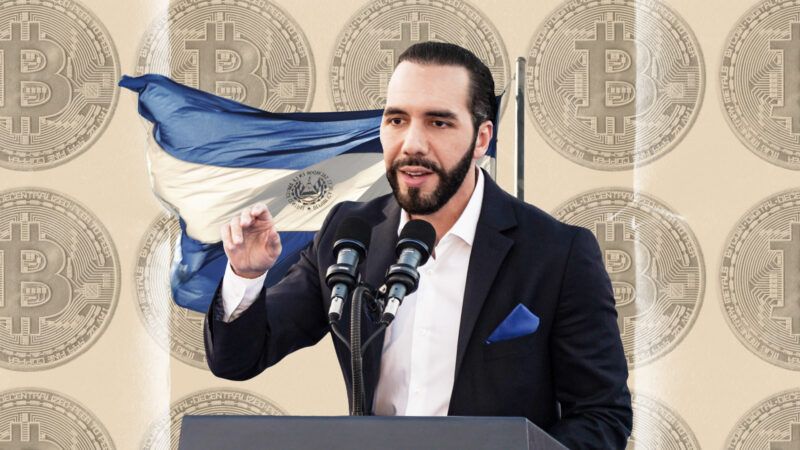A Week of Failing To Pay With Bitcoin in El Salvador
The country claims to be a leader in crypto transactions. But you can't force people to take a currency they don't want.

When President Nayib Bukele promised that bitcoin would be accepted everywhere in El Salvador, it seemed like a glimpse into the future—a world where cryptocurrency would be woven into everyday life. But after a week there, I found a different reality. Not a single business accepted my bitcoin.
In September 2021, El Salvador became the world's first country to adopt bitcoin as legal tender alongside the U.S. dollar. The vision was ambitious: According to Bukele, bitcoin would "improve the lives and the future of millions," making it easier to access financial services where traditional banking is often out of reach.
To incentivize adoption, the government launched the Chivo wallet app, offering $30 in bitcoin to anyone who signed up. Bitcoin ATMs popped up nationwide and plans were announced for Bitcoin City, a tax-free, bitcoin-powered metropolis fueled by geothermal energy from a volcano. El Salvador was on its way to become a global crypto hub.
Yet my trip to El Salvador revealed a gap between the promise and the reality. At restaurants, hotels, and shops, my attempts to pay with bitcoin were met with confusion or outright rejection. Despite a 2021 law requiring businesses to accept bitcoin, every establishment I visited turned it down. Instead, I received puzzled looks from waiters, clerks, and cashiers who seemed more perplexed than prepared.
A recent survey conducted by Francisco Gavidia University in San Salvador found that 92 percent of Salvadorans don't use bitcoin. This marks an increase from the 88 percent found in a similar study conducted by the Central American University, San Salvador last year.
Some locals shared their reasons for opting out. At Lake Coatepeque, one waiter told me he skipped downloading the app entirely because he "didn't want to give his personal information to the government." In Santa Ana, another waiter said he wasn't interested in bitcoin because he "didn't understand how it worked" and had "no intention of learning." Others admitted they were scared by the technical glitches in the Chivo wallet.
In fact, only about 20 percent of citizens downloaded Chivo wallet and claimed the $30 in bitcoin bonus—a surprisingly low rate given the allure of free bitcoin. (As a Salvadoran citizen myself, I couldn't resist.)
Despite low adoption rates, Bukele remains committed to his vision, continually growing El Salvador's bitcoin holdings. Currently, the country holds around 6,000 bitcoin and has plans to buy more.
Yet when the Francisco Gavidia University survey asked respondents "what should be the main focus for the future of the country," only 1.3 percent responded "bitcoin."
Meanwhile, the International Monetary Fund has voiced concerns about the country's bitcoin experiment. "What [IMF] has recommended is a narrowing of the scope of the bitcoin law, strengthening the regulatory framework and oversight of the bitcoin ecosystem, and limiting the public sector exposure to bitcoin," said Julie Kozack, the IMF's director of the communications department.
Bitcoin usage might be more prevalent in the capital or in crypto hotspots like Bitcoin Beach, but elsewhere adoption remains limited. For now, Bukele's bitcoin revolution feels more like a distant vision than a daily reality for most Salvadorans.


Show Comments (21)